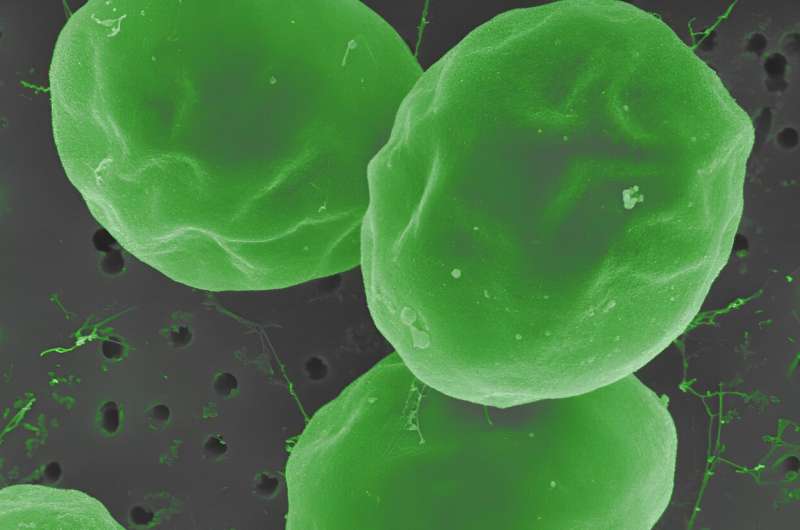This article has been reviewed according to Science X's editorial process and policies. Editors have highlighted the following attributes while ensuring the content's credibility:
fact-checked
peer-reviewed publication
trusted source
proofread
Microalgae can detoxify methylmercury, study finds

In the search for ways to fight methylmercury in global waterways, scientists at Oak Ridge National Laboratory discovered that some forms of phytoplankton are good at degrading the potent neurotoxin.
Phytoplankton, or microalgae, are known as accumulators of methylmercury. The plankton introduce methylmercury into the food chain, where it makes its way to fish and eventually to humans. But researchers found that some forms of phytoplankton are also good at detoxifying methylmercury, even where there is no sunlight.
"We already knew that bacteria and photochemical processes can demethylate methylmercury, but we proved that phytoplankton alone could do the job," said ORNL's Baohua Gu.
"The global mercury cycle is very complex, with lots of reactions taking place," said ORNL's Alex Johs. "Here we've discovered a new mechanism that can be used to improve the prediction and accuracy of mercury-cycling models to better assess risks to human health and the environment."
More information: Xujun Liang et al, Light-independent phytoplankton degradation and detoxification of methylmercury in water, Nature Water (2023). DOI: 10.1038/s44221-023-00117-1
Journal information: Nature Water
Provided by Oak Ridge National Laboratory




















